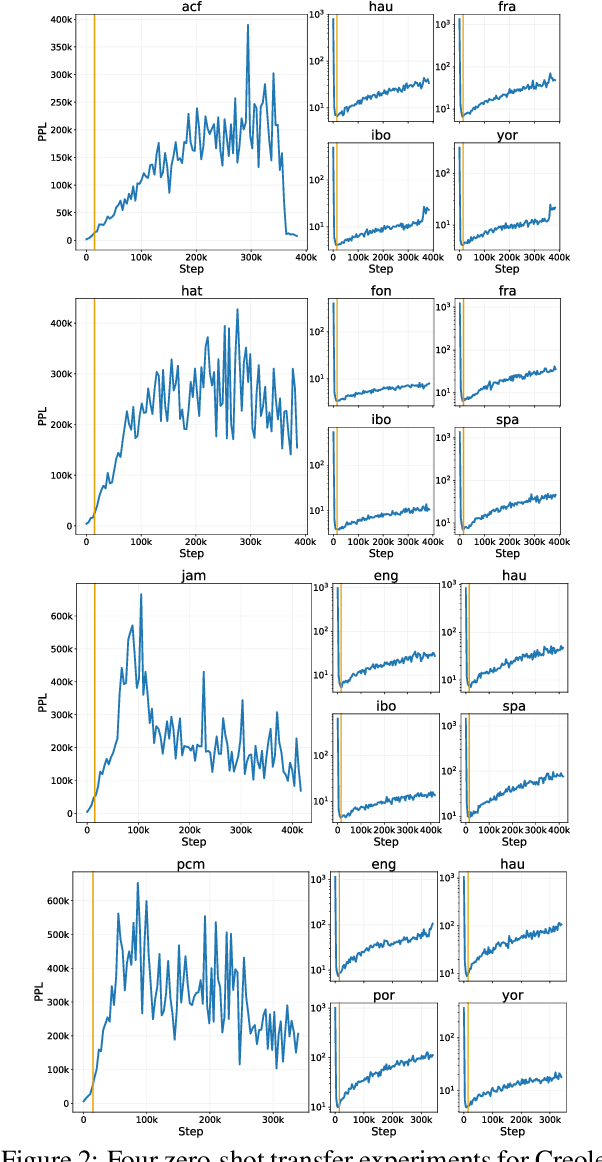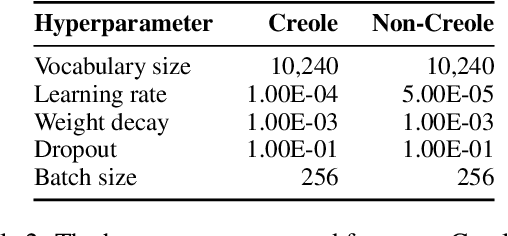Ancestor-to-Creole Transfer is Not a Walk in the Park
Paper and Code
Jun 09, 2022



We aim to learn language models for Creole languages for which large volumes of data are not readily available, and therefore explore the potential transfer from ancestor languages (the 'Ancestry Transfer Hypothesis'). We find that standard transfer methods do not facilitate ancestry transfer. Surprisingly, different from other non-Creole languages, a very distinct two-phase pattern emerges for Creoles: As our training losses plateau, and language models begin to overfit on their source languages, perplexity on the Creoles drop. We explore if this compression phase can lead to practically useful language models (the 'Ancestry Bottleneck Hypothesis'), but also falsify this. Moreover, we show that Creoles even exhibit this two-phase pattern even when training on random, unrelated languages. Thus Creoles seem to be typological outliers and we speculate whether there is a link between the two observations.
 Add to Chrome
Add to Chrome Add to Firefox
Add to Firefox Add to Edge
Add to Edge